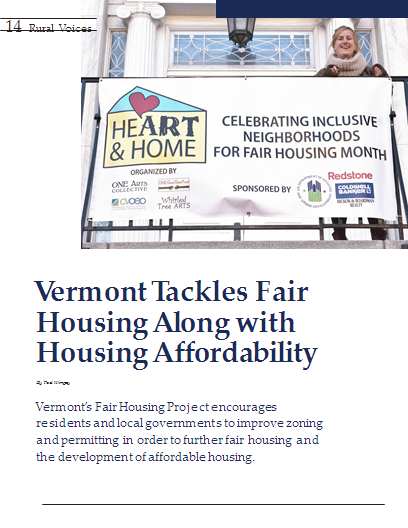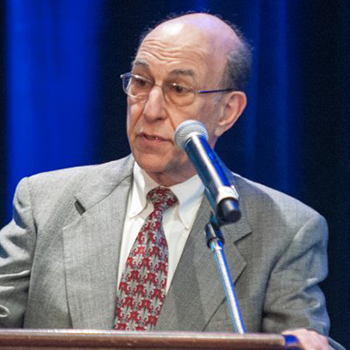Continue reading Controlling Land Collectively: The CLT Ground Lease Reimagined – Shelterforce
Category Archives: affordable housing
Thriving Communities Weekly Round Up – 6/27/18
Affordable Housing Still Out of Reach for Low-Wage Workers
WORKING TOWARD ACCESS FOR ALL – Fifty Years of the Fair Housing Act: a Vermont Perspective

FHP organized event in front of Burlington, VT City Hall Continue reading WORKING TOWARD ACCESS FOR ALL – Fifty Years of the Fair Housing Act: a Vermont Perspective
News: Groundbreaking Marks French Block Housing Start In Montpelier Vermont

Economic Inequality Largely Boils Down to Housing Inequality – CityLab
Thank THUD Appropriations Leadership for HUD Funding Increase in FY 18 Budget
 Campaign for Housing and Community Development Funding Thanks THUD Appropriations Leadership for HUD Funding Increase
Campaign for Housing and Community Development Funding Thanks THUD Appropriations Leadership for HUD Funding Increase
Continue reading Thank THUD Appropriations Leadership for HUD Funding Increase in FY 18 Budget
April 2018, The 50 Year Anniversary of the 1968 Federal Fair Housing Act
VT Governor Phil Scott’s Proclamation of April as Fair Housing Month and marking the celebration of the 50th anniversary of the Federal Fair Housing Act.
[pdf-embedder url=”https://www.thrivingcommunitiesvt.org/wp-content/uploads/2018/04/Gobernatorial_FH-Proclamation_2018.pdf” title=”Gobernatorial_FH Proclamation_2018″]
Burlington Mayoral Proclamation of April, 2018 as Fair Housing Month in Burlington, VT and Burlington celebrates April, 2018 as the 50th Anniversary of the Federal Fair Housing Act.
[pdf-embedder url=”https://www.thrivingcommunitiesvt.org/wp-content/uploads/2018/04/BurlingtonMayor_FH-Proclamation_2018.pdf” title=”BurlingtonMayor_FH Proclamation_2018″]
Hundreds Convene to Build the Affordable Homes Movement in Washington, DC, March 19-21
Content by the National Low Income Housing Coalition
NLIHC 2018 Housing Policy Forum
Hundreds Convene to Build the Affordable Homes Movement in Washington, DC, March 19-21
NLIHC Source: Click here to read the entire Memo to Members, Hundreds Convene to Build the Affordable Homes Movement in Washington, DC, March 19-21 | National Low Income Housing Coalition Memo to Members
More than 450 affordable housing advocates and providers, resident leaders, researchers, and policy makers attended the NLIHC 2018 Housing Policy Forum: Building the Movement, which took place in Washington, DC on March 19-21. A broad cross-section of NLIHC members and partners engaged with policy makers, experts, and one another, participated in more than a dozen sessions and workshops on building the national affordable homes movement, and met with lawmakers on Capitol Hill to urge them to take action to address homelessness and housing poverty in America.

Below is An Excerpt from Memo to Members:
“The first panel of the Forum discussed the State of Fair Housing on the 50th Anniversary of the Fair Housing Act. *Richard Rothstein, author of The Color of Law, described the history of explicit federal, state, and local government policies that resulted in housing segregation – which still persists today. He told the audience to challenge how the history of segregation is mis-taught or not taught in our schools. He also suggested that an analysis of fair housing history should be required in jurisdictions’ Analyses of Impediments to fair housing.
Mr. Rothstein was joined by three panelists.
*Lisa Rice, who will succeed Shana Smith as president and CEO of the National Fair Housing Alliance, shared a graphic, “Where You Live Matters,” showing how someone’s ZIP Code affects so many facets of life, like health, education, and income. “We need to help create a fair housing vision and push it forward to HUD,” Ms. Rice said. “The Affirmatively Furthering Fair Housing rule is a great opportunity to move forward.”
*James Cadogan, director of the NAACP Legal Defense and Educational Fund’s Thurgood Marshall Institute, encouraged “recapturing the public narrative” by explaining that the effects of historic government-sponsored segregation continue as “a pernicious and pervasive harm today – it is current affairs.”
*Don Chen, director of Equitable Development at the Ford Foundation, urged housers with differing priorities to come together toward a common set of fair housing goals. He suggested correcting the “fake history” around segregation by engaging children in learning about the fair housing history in their communities.”
Fifty Years After the Fair Housing Act was Passed to Combat Segregation, We are Still Struggling to Find the Will to Implement It
Source: Housing Perspectives (from the Harvard Joint Center for Housing Studies)
“… the interest in maintaining segregation lies with individual localities, but …the sum of the localities (in the form of metropolitan regions or states) are invested in combating it. While not discounting the fact that many people say they desire integrated neighborhoods in the abstract while opposing them in their own community (something anyone who has ever attended a local zoning meeting in an exclusionary area can attest to) the math is obvious. Opposition is concentrated in localities with a minority of the population, and this opposition is the roadblock to creating truly integrated regions.”
…
“In moving forward, we should look back on what moved us from these tentative steps in the 1950s toward the broad ones of the 1960s, mainly the organization, enfranchisement, and political power that the civil rights movement produced, and see how we can recreate it for modern times. Without this, “what will it take” and “what can we do” will stay questions with different answers.”